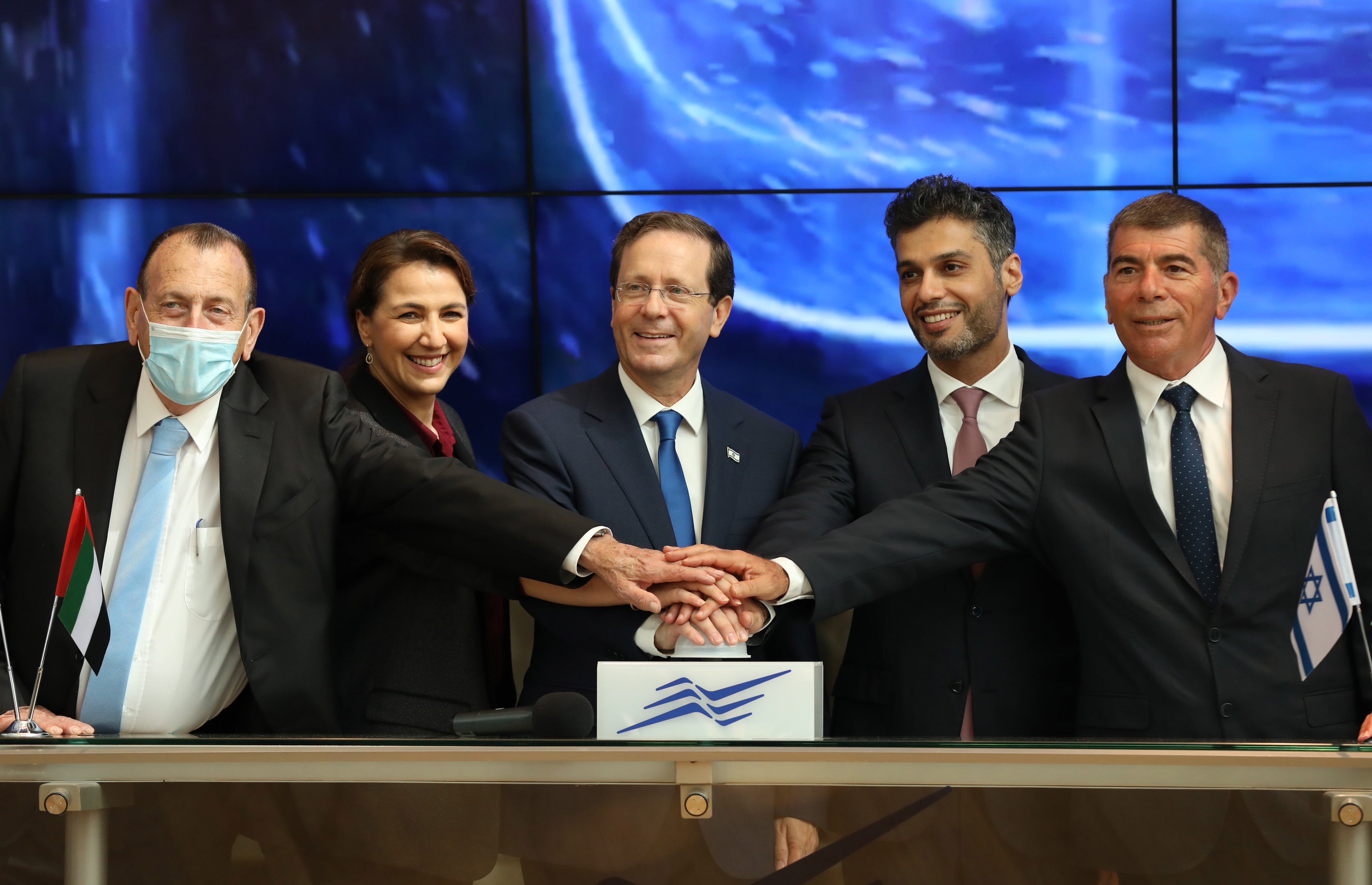UAE becomes first Gulf Arab country to open embassy in Israel
The move marks a break from an Arab consensus to make peace with Israel after an agreement between Israel and the Palestinians

The United Arab Emirates has officially opened its embassy in Israel, heralding a phase of open diplomatic relations between the two countries after signing a normalisation and peace agreement less than a year ago.
The new embassy is located in the same Tel Aviv tower as Israel’s stock exchange. At the ceremony, the Israeli new President Isaac Herzog said that the embassy opening was “an important milestone in our shared journey toward a future of peace, prosperity and security for the Middle East”.
The embassy inauguration comes only two weeks after Israel’s newly appointed foreign minister Yair Lapid cut the ribbon on an Israeli embassy in Abu Dhabi and a consulate in Dubai in June. This event makes the UAE the first Arab Gulf state to open an embassy in Israel.
The UAE ambassador to Israel Mohamed Al Khaja said on Twitter that it was a “great honour to open” the embassy. “The UAE’s commitment to the Abraham Accords is unbreakable and is now cast in concrete here, in Tel Aviv”.
The UAE normalised relations with Israel in September 2020 under a peace deal, dubbed the “Abraham Accord” and engineered by the Trump administration. His advisor and son-in-law, Jared Kushner, played a pivotal role behind closed doors in paving the way for the agreement to go ahead.
The deal provoked angry reactions from the Palestinians, with some officials in the occupied territories calling the move a “stab in the back”. The decision marked a break from an Arab consensus that there should be no peace agreement with Israel before a comprehensive and lasting peace deal between Israel and the Palestinians.
The new UAE embassy is located in Tel Aviv as countries try to avoid Jerusalem due to its complicated status as part of the peace process.
Israel captured east Jerusalem in 1967 and later annexed it in a move unrecognised by most of the international community. The city is the seat of the Israeli parliament, Supreme Court and many government offices. The Palestinians seek east Jerusalem as the capital of a future independent state.
After the UAE, Israel under former prime minister Benjamin Netanyahu signed similar agreements with Bahrain, Morocco and Sudan, which also triggered Palestinian condemnation.
Israel hopes the accelerated diplomatic exchanges will boost the two countries’ economies. Lapid told Emirati media last month that bilateral trade has reached more than $675m since the signing of the Abraham Accords. Israel and the UAE have also signed a set of deals in several sectors, including tourism, aviation, and financial services.
Subscribe to Independent Premium to bookmark this article
Want to bookmark your favourite articles and stories to read or reference later? Start your Independent Premium subscription today.

Join our commenting forum
Join thought-provoking conversations, follow other Independent readers and see their replies
Comments